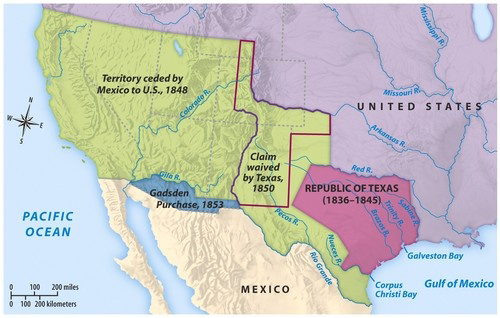I work with a lib (and yes, the ‘scratch a liberal, etc’ type of lib) and our discussions went some interesting places.
For one, I brought up the shelling of Donbas over the years prior to the war. Now, we’ve discussed the situation regarding folks of Russian background living in Ukraine, folks who’d lived there since the Soviet era and probably even before (I’m not a history buff, but I’m aware folks could easily move around the USSR the same way people can move around the states). Now the guy who likes to diminish the horrors of the US empire post-WW2 as being ‘oh, you mean stuff in the past’ (he’s very good at making sure to set the tone in this manner by the way) now wants to talk about how the last 100 years isn’t a long time period, it’s not really history. He tries to explain it as ‘imagine Mexicans moved in about a hundred years ago’ to try and compare that with Russians living in Donbas, and like…dude, are you about to justify ethnic cleansing? I can’t remember the exact flow of the discussion but thankfully he didn’t expound on that any further.
The very lib approach to language is also a favorite of his; so for example when I tell him that Russia since the start of the war has killed less than 10,000 (EDIT: civilians), rather than discuss it directly (or deny it directly) he instead asks ‘so you believe they killed less than 10,000 (EDIT: civilians)?’, and he does this with everything he doesn’t want to directly deny.
He also makes it sound like this war continuing the way it is, is the only way it can go. I tried explaining that diplomacy would be the better option, but I’m getting the feeling that he wants Ukraine to keep the areas currently held by Russia (and that continued war for it is a good thing), and I really doubt he cares about the killings that had been going on until then.
When discussing countries like China or North Korea, I point out that the news has a history of lying when it comes to discussing the US’ geopolitical rivals, and he argues that just because they lied in the past it doesn’t mean they’ll always lie. Additionally he likes to twist it and say that in this case we can’t trust anyone because anyone can lie. This guy’s only two settings are to basically either trust US news that walks in lockstep with American foreign policy or to claim that no one can be trusted (though I doubt he actually believes the latter). He won’t trust the critics who don’t have a history of lying us into wars, but he’ll trust the ones who have.
He also supports the overthrow of Gaddafi because he says people should be allowed to choose their leaders and that Gaddafi killed/arrested opposition members. It’s over ten years later and Libya was stuck in a civil war until I believe only recently. The guy says he doesn’t like politicians in general, and doesn’t like how corrupt politics are, but he hardly seems to oppose the US’ meddling/warring in foreign countries. It’s always necessary. He supports the US selling weapons to Taiwan for example, despite not recognizing Taiwan as an independent country (which sounds to me like they’re basically just selling the weapons to rebels). Basically if the government decided to start a war with any number of non-Western countries, this guy would find it justified.
When I brought up that CEOs, boards of directors and such at large corporations should absolutely have their jobs taken from them and their companies run by the people who work in these places, he asks why we don’t just lay off corrupt politicians. I explained that corporations will continue to influence politics regardless of which politician gets replaced and they have the money to find all the loopholes, but he keeps steering the conversation back to laying off corrupt politicians (basically it’s the whole ‘liberals protect capital’ aspect of libs).
We talk a lot about games, movies and shows and such, but when politics comes up, the guy sounds like a government representative.
I think a lot of Americans struggle to have a coherent understanding of foreign affairs. Maybe while talking through it, your coworker will realize some of his contradictions.
His take on CEOs is infuriating though. Thats an unironic “just vOtE” while talking about corruption.
We talk a lot about games, movies and shows and such
Honestly, this is where you get the best understanding of someone’s politics.
I think a lot of Americans struggle to have a coherent understanding
of foreign affairs.I think a lot of Americans struggle
to have a coherent understanding of foreign affairs.Their understanding is “I’m American and I’m good so whatever America does is good”
And then inherent contradictions just bounce of their marble smooth brain.
Which is why the two options are “the people saying America is good are right” and “the people saying America is bad are liars”
For one, I brought up the shelling of Donbas over the years prior to the war.
One small thing I do that makes their brains short circuit is to say before Russia joined the war. The war started in 2014, Russia only joined in 2022.
I assume that’s the part where they imply in a homophobic manner that you love Putin
that’s when you double down and sing the ‘a man like putin’ song
He must be swift as a coursing river,
With the force of a great typhoon…
its very tedious isn’t it.
“yea I guess it’s just surprising that you’re so trusting of the US government. for our entire lives they’ve been lying about Iraq, Afghanistan, libya, yemen so to me they’re probably lying about this one too. I guess you just have a lot of faith in the government to do the right thing hey?”
I’m aware folks could easily move around the USSR the same way people can move around the states
Sorry to nitpick but I was under the impression that the USSR typically had internal travel restrictions. Not too say it was a full lockdown, but you couldn’t just “go wherever” like you can in the USA without any documentation. Maybe that’s not correct or my understanding is not complete?
Also curious about this. Here’s what I’ve found so far (emphasis mine):
Migration in the Soviet Era
The borders between the Soviet republics never acted as barriers to migration, fulfilling only an administrative function. Soviet migration policy focused mainly on internal migration, for the purpose of redistributing the labor force. Millions of people moved between the Soviet republics as the state attempted to regulate internal migration primarily by stimulating resettlement to sparsely populated regions with considerable deposits of natural resources, including to northern and far-eastern Russia and to Kazakhstan. Mobility was partly regulated by the registration (propiska) system, although this system did not significantly inhibit migration, and internal and inter-republic movement developed based on factors including family connections and job opportunities. Rural residents continuously flowed to urban areas, where the population became more concentrated.
https://www.migrationpolicy.org/article/russia-migration-system-soviet-roots
While there was a residency permit system of some sort, and the contours of it changed over the lifespan of the soviet system, and changed again in the decade after the collapse. Regardless, it didn’t seem to really stop people from moving around. There is more info on english language natopedia, but obv take it with a grain of salt as its likely to show western bias
Ah, makes sense, I wasn’t thinking they were locked down permanently or anything, but it’s a lil different than the US it seems.
‘imagine Mexicans moved in about a hundred years ago’ to try and compare that with Russians living in Donbas
What a shit analogy. Wouldn’t it be more apt and historically accurate if he said “imagine if Americans moved into Mexico”?

I think what you’re dealing with is this classic negation that leads to returning to the default position. Actually, now that I’m thinking about it, I’ve seen this happen in a positive sense too and I’m going to call it “equal opportunism”. Hear me out…
So the attitude is one that inherently supports the status quo and the hegemonic narratives/worldview etc.
In the negative sense, like your friend is doing, they’re dismissing all information as being propagandistic or biased, which is fine because there’s no such thing as an objective fact in matters of politics, but rather than weighing these facts based on their merit he is just lapsing back into an uncritical default position.
This is like when you discuss the topic of the alleged Uyghur genocide. You can get a person to admit that it doesn’t meet the definition of a genocide and that one malcontent Uyghur being interviewed by the BBC claiming that they had to “sing propaganda songs!!” every day (and then proceeding to half-arsedly sing "Méiyǒu Gòngchǎndǎng Jiù Méiyǒu… Gòngchǎndǎng) in a reeducation camp is not proof positive that there’s a genocide, nor that western academic tweeting about how teaching Uygur kids modern dental hygiene practices is proof of cultural genocide…
But then they’ll lapse back into the default position of “where there’s smoke there’s fire” or something to that effect.
The positive expression of this same attitude (positive in the sense that it’s the opposite of the negation explained above; the act of actively putting something out into the world, not something positive in the sense that it’s in any way good) is when you get “equal opportunity racists/misogynists etc.” who tell themselves that they will dish out insults or crack jokes at the expense of anyone’s race or gender or GSRM status etc. “equally” as a justification, which conceals the ongoing history of oppression that these groups face and so this just serves to perpetuate prevailing hegemony.
It’s basically a person expressing the deep desire to not engage critically with the sphere of politics in its broadest sense. “I have my hermetically-sealed worldview; by rejecting all facts, I don’t have to adjust my actions or political beliefs and I don’t have to do any introspection.”







